A lien is a legal claim that one party has over the property of another party in exchange for money owed. In Canada, liens are commonly used in the construction industry as a way for contractors to ensure they are paid for their work. However, liens can also be used in other industries and situations. This article will define a lien, how it works, and why you should hire a commercial estate lawyer.
What Is A Lien?
A lien is a legal claim that one party has over the property of another party as security for a debt or obligation. In Canada, liens are governed by provincial laws and can vary slightly depending on the province.
Liens are commonly used in the construction industry, where contractors and subcontractors can place a lien on a property if they are not paid for their work. However, liens can also be used in other industries and for personal debts, such as unpaid taxes or credit card debts.
How Does A Lien Work?
When a lien is placed on a property, the property cannot be sold or transferred until the debt or obligation is paid. The lien holder has a legal claim to the property and can take legal action to enforce the lien if necessary.
In the construction industry, a contractor or subcontractor can place a lien on a property if they are not paid for their work. The lien must be registered with the province’s land registry office within a specific time frame, typically within 45 to 60 days of the work being completed.
Once the lien is registered, the owner cannot sell or transfer the property until the lien is paid. The lien holder can take legal action to enforce the lien, such as filing a lawsuit or forcing a property sale.
What Are the Types of Liens?
Several types of liens can be placed on a property in Canada. The most common types include:
- Construction Liens – These liens are used in the construction industry to ensure contractors and subcontractors are paid for their work.
- Tax Liens – These liens are placed on a property by the government if the owner owes unpaid taxes.
- Judgment Liens – These liens are placed on a property if the property owner has a court judgment against them, such as for unpaid debts or damages.
- Mechanic’s Liens – These liens are used in the automotive industry to ensure that mechanics are paid for their work.
- Repair Liens – These liens are used in the repair industry to ensure that repair shops are paid for their work.
How to Remove A Lien
The debt or obligation must be paid in full to remove a lien from a property. Once the debt is paid, the lien holder must release the lien by filing a release of lien with the land registry office.
If the lien holder does not release the lien, the property owner can take legal action to have the lien removed. This may involve filing a lawsuit or seeking a court order to remove the lien.
It is important to note that liens can affect the sale or transfer of a property. If a lien is placed on a property, it may be challenging to sell it until it is paid or removed. This can cause delays and additional costs for the property owner.
Conclusion
Navigating liens can be a complicated and tricky process. It is essential to thoroughly understand the laws and regulations related to liens to ensure that you are taking the best steps to protect your rights and interests.
Hiring a commercial or property division lawyer is one of the best ways to ensure the law handles this process. A commercial lawyer is experienced in all aspects of lien law and can help ensure that any disputes are resolved fairly and timely. With the help of a commercial lawyer, you can be sure that you are taking the necessary steps to protect your rights and interests.
Looking for reliable legal services in Abbotsford or anywhere in British Columbia? Our experienced commercial lawyers at Pathfinder Law provide various services, including civil litigation, family law, construction law and builders liens, employment law, wills and estates, and business law services. Trust us to handle all your legal needs with the utmost professionalism and expertise. Contact us today to schedule a consultation, and let us help you navigate complex legal issues efficiently.


